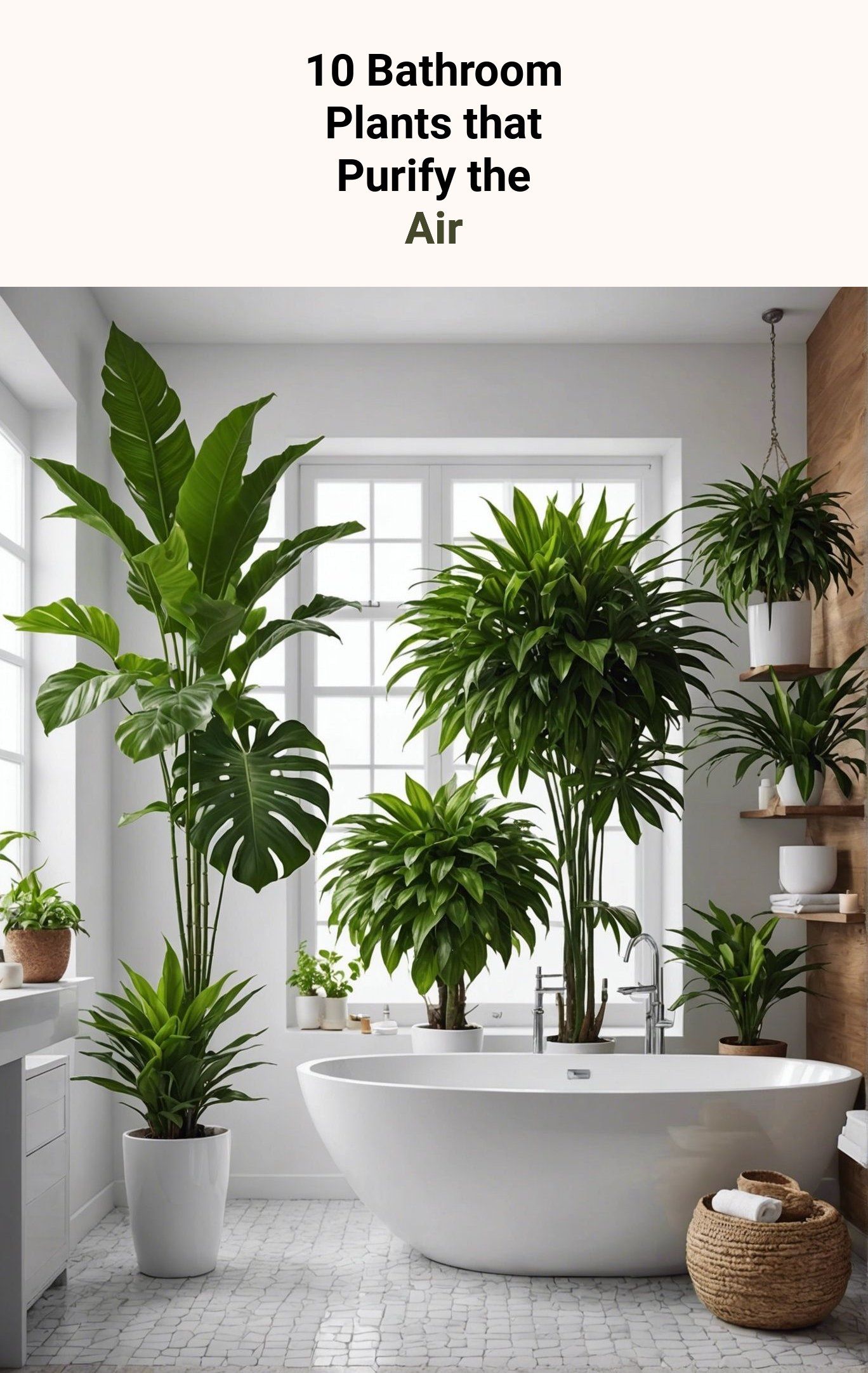Beautiful Plants For Your Interior
Beautiful Plants For Your Interior
Transform your bathroom into a spa oasis with these 10 air-purifying plants. From the striking Snake Plant to the elegant Weeping Fig, each of these verdant beauties not only adds a touch of nature to your space but also works wonders for your indoor air quality.
| Plant | Purification Power |
|---|---|
| Snake Plant | Effective at removing formaldehyde and benzene |
| Peace Lily | Filters ammonia, benzene, and formaldehyde |
| Spider Plant | Eliminates xylene, formaldehyde, and benzene |
| ZZ Plant | Purifies toluene and xylene |
| Aloe Vera | Removes benzene and formaldehyde |
| Bamboo Palm | Eliminates trichloroethylene, benzene, and formaldehyde |
| Golden Pothos | Filters formaldehyde, benzene, and ammonia |
| Weeping Fig | Purifies formaldehyde, trichloroethylene, and benzene |
| English Ivy | Removes benzene, trichloroethylene, and formaldehyde |
| Boston Fern | Filters formaldehyde, xylene, and ammonia |
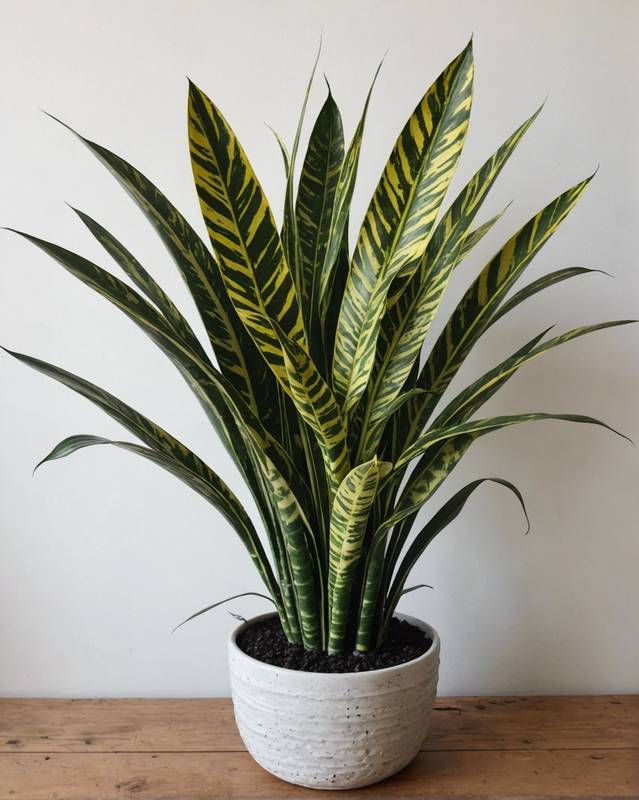
Known for its hardiness, the snake plant is an excellent choice for the bathroom. It thrives in low light and infrequent watering, making it ideal for the often-neglected bathroom environment.
Additionally, this plant is a natural air purifier, effectively removing harmful toxins from the air.
To care for a snake plant, ensure well-draining soil and allow the soil to dry out completely between waterings. Overwatering is a common mistake that can lead to root rot.
Place your snake plant in a spot with bright, indirect light, or it can tolerate low light conditions.
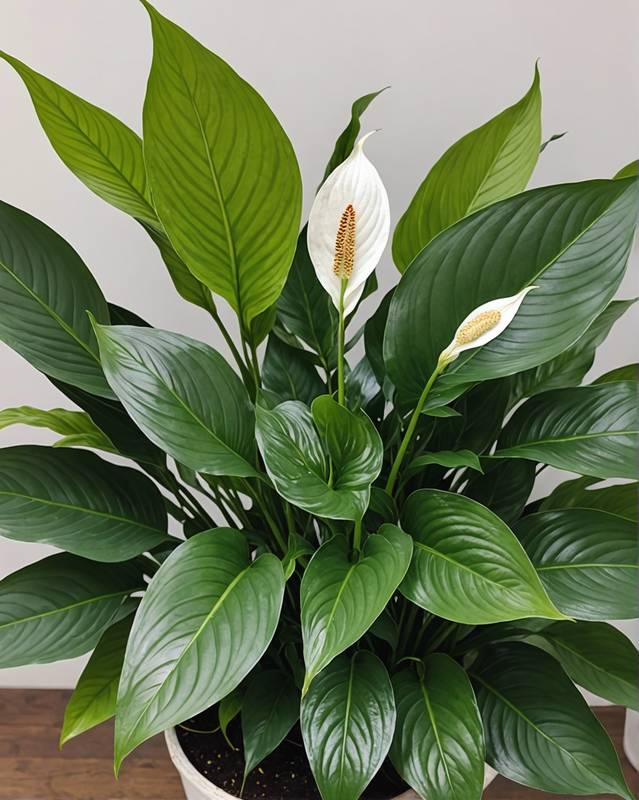
An elegant choice for bathrooms is the Peace Lily.
It’s not only a visual charmer with its glossy green leaves and white flowers but also an air-purifying powerhouse.
The Peace Lily effectively removes harmful toxins like benzene, formaldehyde, and trichloroethylene from the air.
Caring for Peace Lilies is relatively easy.
They thrive in indirect sunlight, so a bathroom with a window is ideal.
Water your Peace Lily when the soil feels dry to the touch, and mist it occasionally to increase humidity.
Avoid overwatering, as this can lead to root rot.
With proper care, your Peace Lily will flourish, adding beauty and freshness to your bathroom while improving air quality.
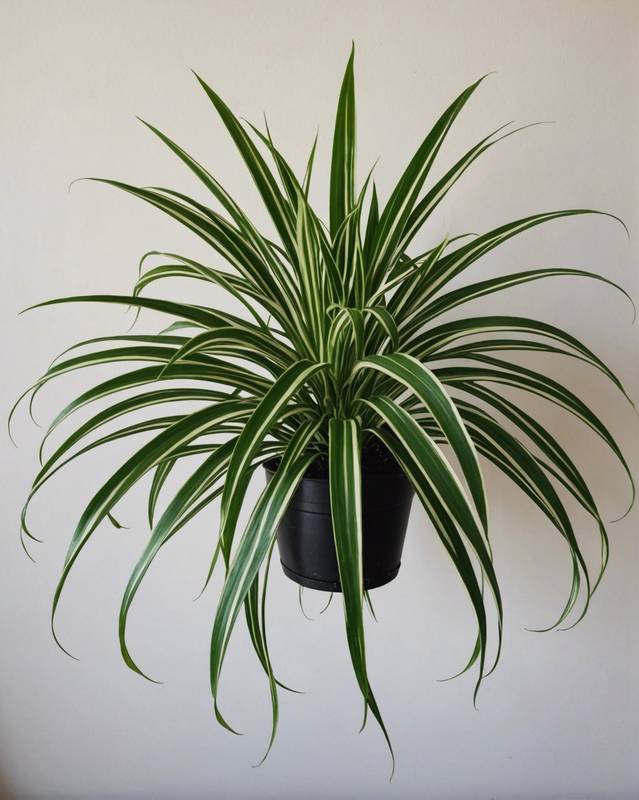
Spider Plant The spider plant is known for its long, trailing stems and easy-to-care-for nature.
It’s also a great air purifier, making it a good choice for any bathroom.
To care for a spider plant, you’ll want to place it in bright, indirect light and water it about once a week.
The plant will do best in well-drained soil.
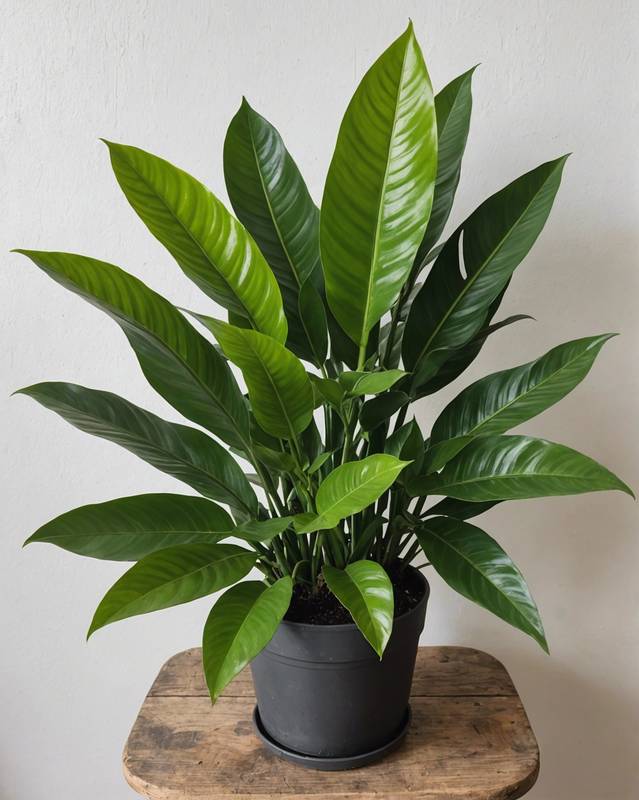
The ZZ Plant, known for its resilience and low-maintenance nature, makes for an ideal addition to any bathroom. This plant thrives in both low and bright light, and can even tolerate occasional droughts, making it perfect for those who may not have the time or attention for regular plant care.
Its distinctive, waxy leaves add a touch of elegance to the space, while its air-purifying abilities help to remove toxins and create a healthier environment.
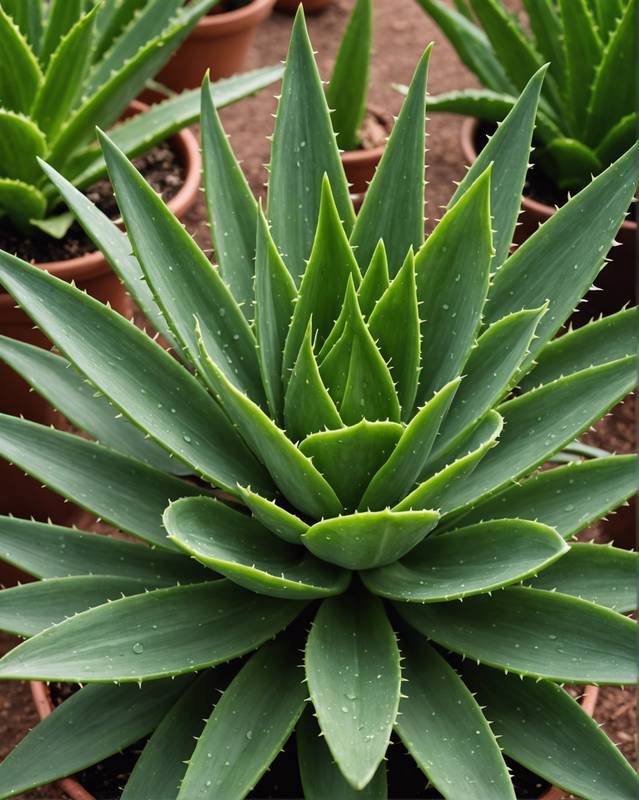
Aloe vera, with its thick, succulent leaves, can thrive even in low-light bathrooms. Its air-purifying qualities make it a helpful addition to your bathroom, removing harmful pollutants like formaldehyde and benzene.
To care for your aloe vera, water it sparingly and ensure it receives bright, indirect light.
Avoid overwatering, as this can lead to root rot. With proper care, your aloe vera plant can live for many years, providing both air-purifying benefits and soothing aloe gel for topical use.

The Bamboo Palm is renowned for its graceful, solitary cane and lush foliage. Its slender stems and dark green leaves create a striking silhouette.
As a tropical plant, the Bamboo Palm thrives in humid environments, making it an ideal choice for bathrooms.
To care for your Bamboo Palm, ensure it receives ample indirect sunlight. Keep the soil consistently moist but avoid overwatering.
Fertilize during the growing season and provide a humidity tray to create a tropical ambiance.
With proper care, this stylish palm can purify the air while adding a touch of elegance to your bathroom oasis.
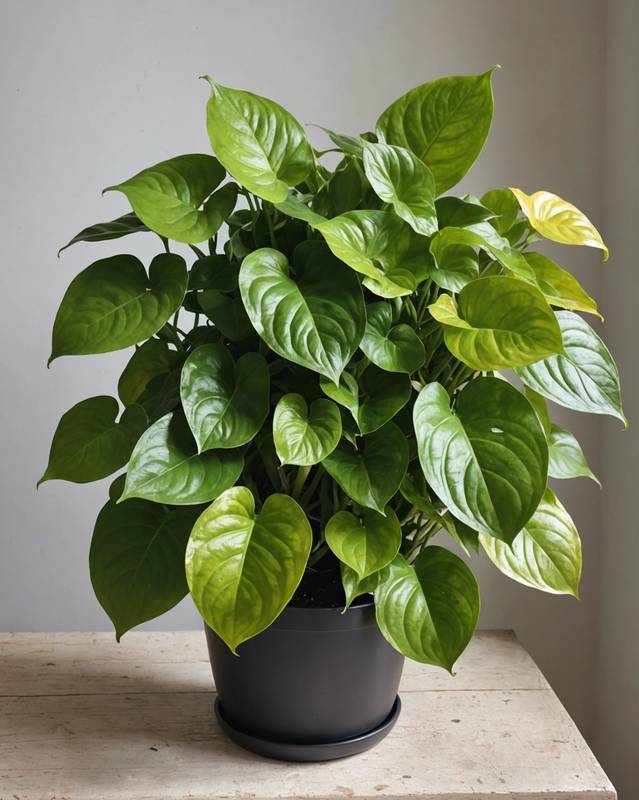
The Golden Pothos is a popular choice for bathroom plants due to its hardiness and air purifying abilities. It can tolerate low light and infrequent watering, making it an ideal plant for those who may not have a lot of time for plant care.
To keep your Golden Pothos thriving, ensure it receives indirect sunlight and water it when the top few inches of soil have dried out.
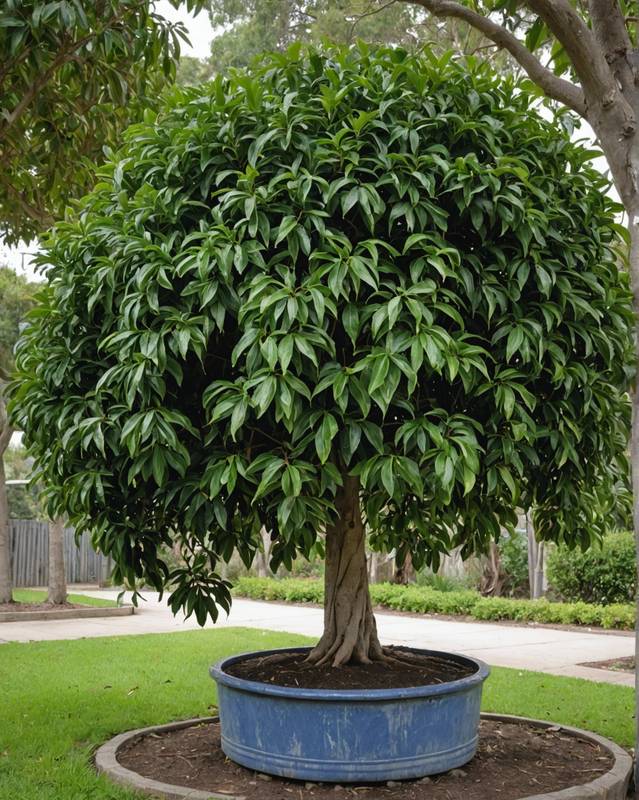
Weeping Fig is known for its air-purifying abilities, removing toxins like formaldehyde and trichlorethylene.
Its lush, cascading foliage creates a serene atmosphere.
Care Tips: Place in bright, indirect light.
Water thoroughly when the top few inches of soil are dry to the touch.
Avoid overwatering, as this can lead to root rot.
Provide high humidity by misting regularly or placing on a pebble tray filled with water.
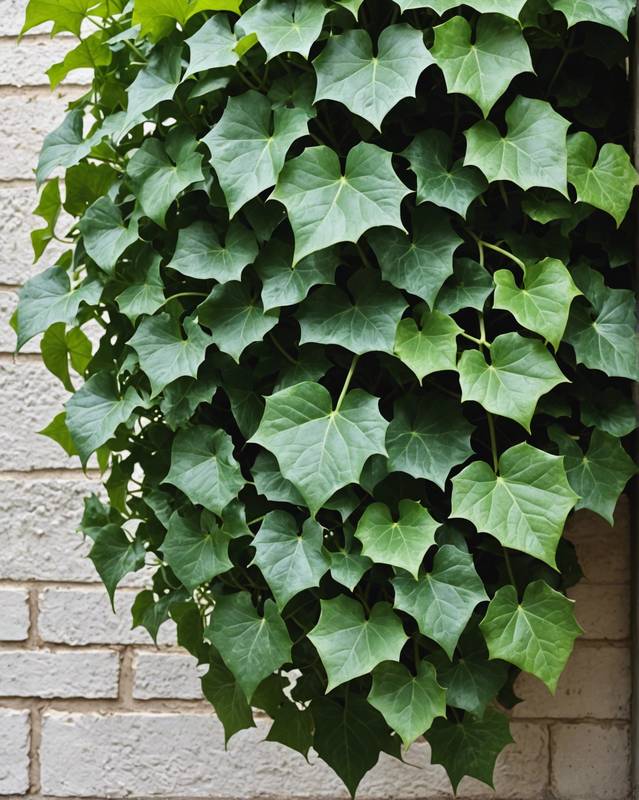
English Ivy is a popular choice for air purification.
It removes formaldehyde, benzene, and other harmful toxins from the air.
This plant is easy to care for and can thrive in a variety of light conditions.
Water when the soil is dry to the touch and fertilize monthly during the growing season.
English Ivy can grow quickly, so be sure to trim it back as needed.
It is also important to keep the plant away from pets, as it can be toxic if ingested.

With its beautiful, arching fronds, the Boston Fern adds a touch of elegance to any bathroom.
Not only is it visually appealing, but it also helps purify the air by removing harmful toxins.
To care for your Boston Fern, place it in a bright, indirect light location and keep the soil consistently moist.
Avoid overwatering, as this can lead to root rot.
Fertilize monthly during the growing season with a balanced liquid fertilizer.
